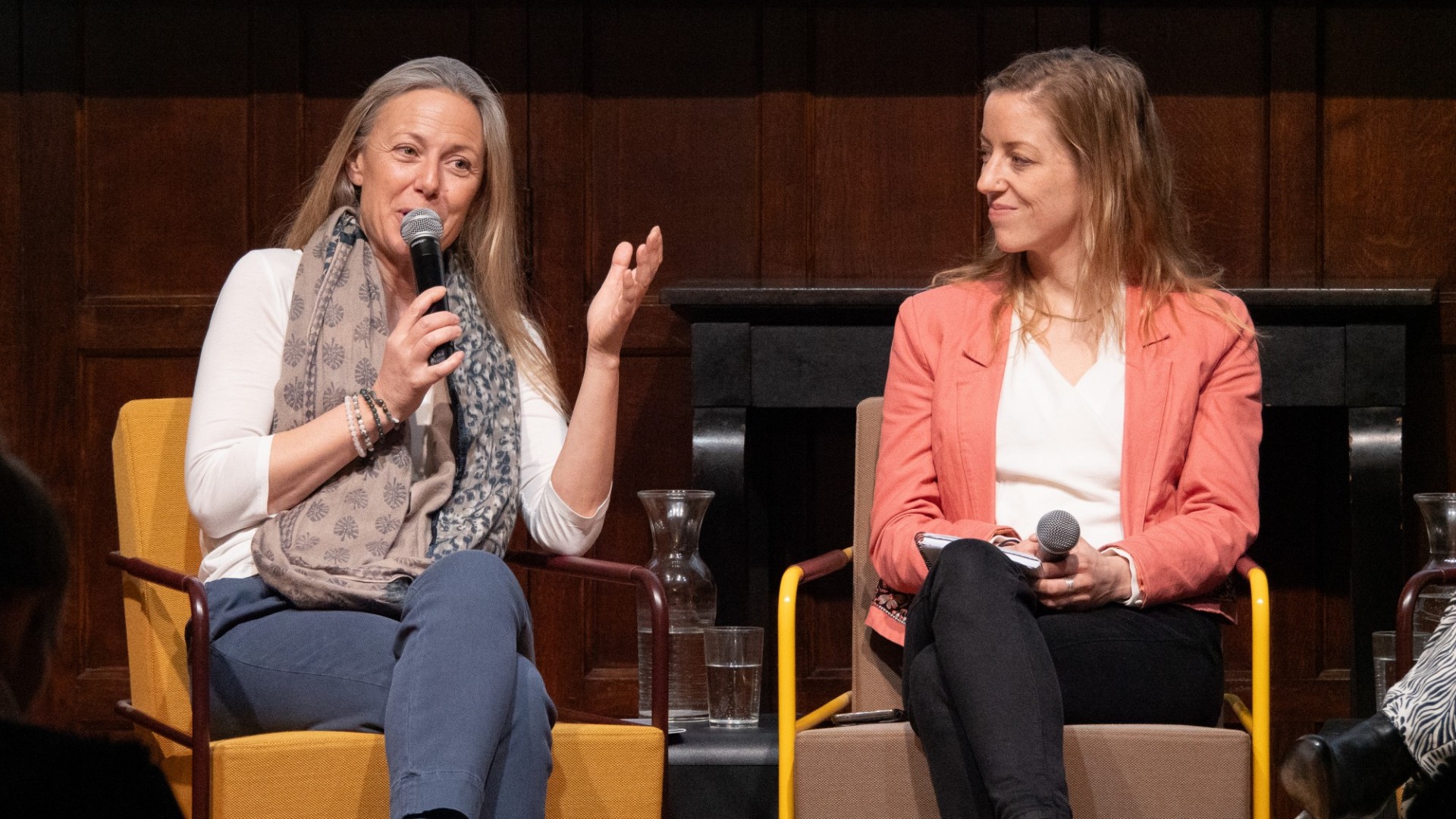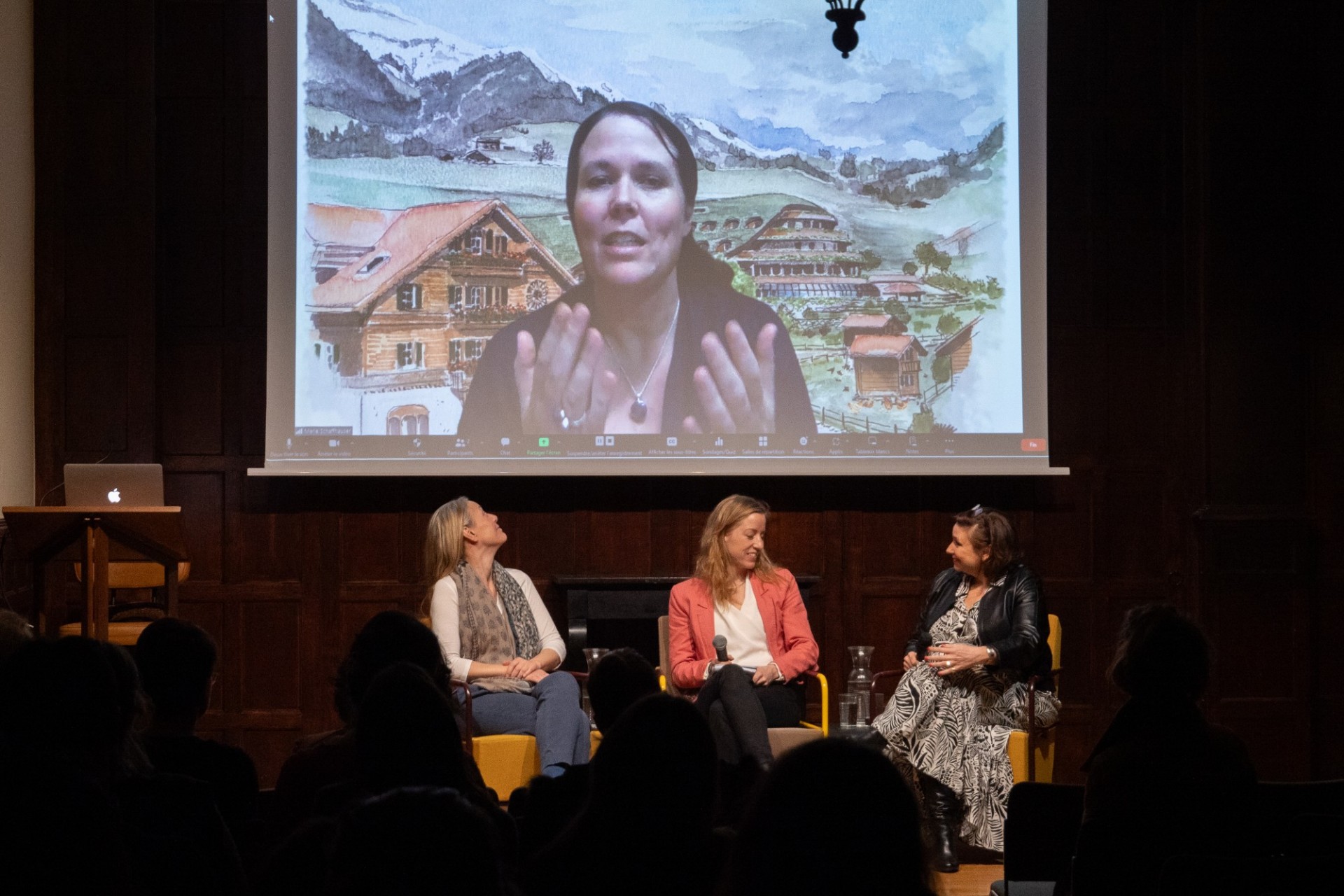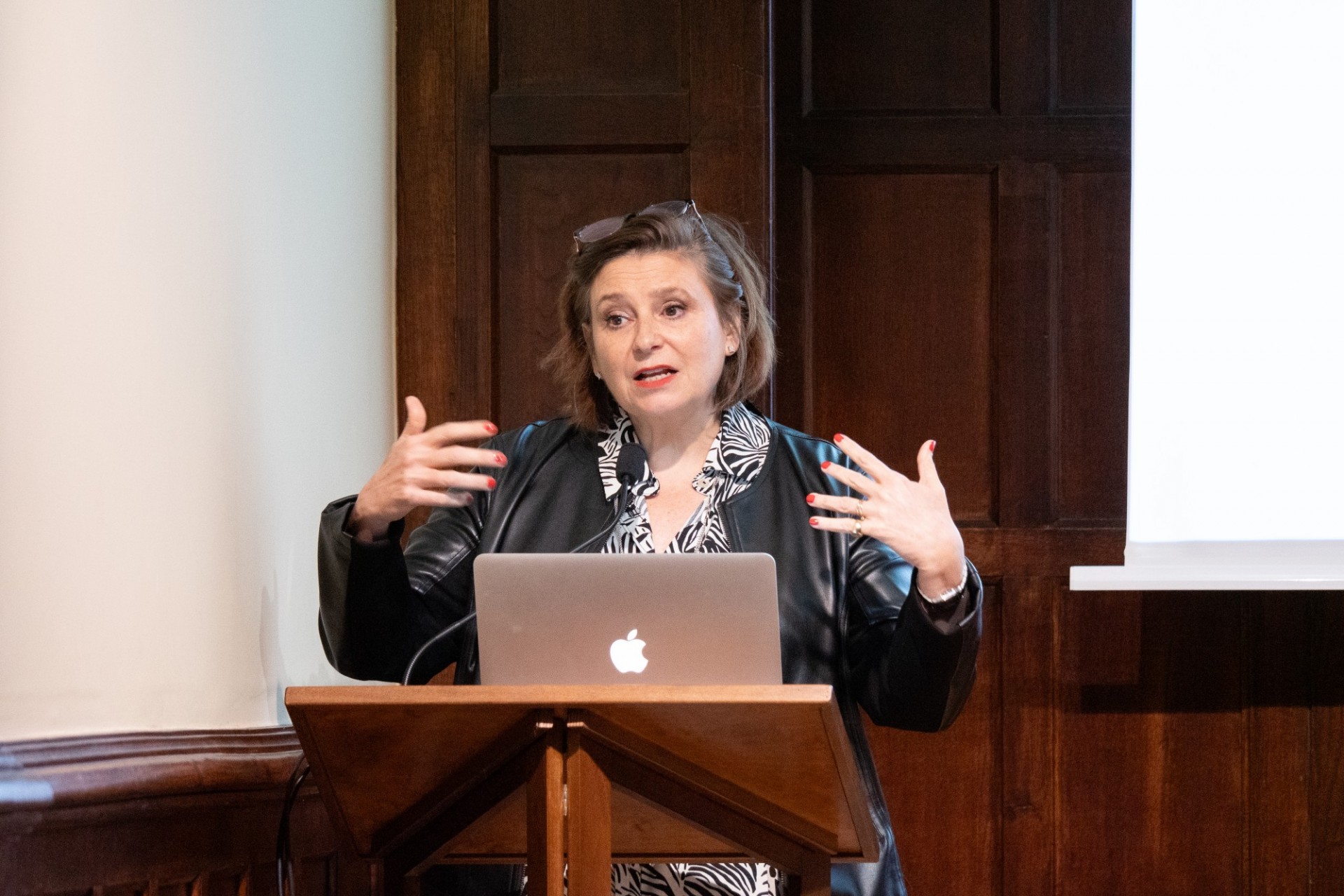Women Play a Vital Role in Climate Adaptation and the Rise of Regenerative Agriculture
Watch a recording of the March 6 event here.
Shifting to sustainable agriculture is a crucial part of climate adaptation, and women are part of the solution.
The recent panel discussion on March 6, 2024 at Columbia Global Center Paris delved into the transformative potential of female engagement in sustainable farming practices. Led by Mélody Braun, Climate Response Lead at the Paris Center, the event featured insightful discussions by specialists Sofia de Meyer, Alice Durand-Reville, and Esther Mottier.
Transforming food systems was a major focus of the last global climate negotiations at COP 28. (Read the declaration.) Climate change affects agriculture around the world, but women in the field have less agency to meet these challenges due to discrimination and unequal access to resources. Yet, they represent 43% of the agricultural labor force (FAO). Sofia de Meyer underscores the urgency of empowering women farmers to address the climate crisis effectively. “To address the climate crisis, we need to change this pattern. We need to include women farmers in the decision making and support their work.”
Alice Durand-Reville emphasizes women's pivotal role in driving the shift towards regenerative agriculture, advocating for cultural and policy reforms to dismantle existing barriers. “They represent a significant part of the labor force in agriculture worldwide and 40% of new settlements in France.” Esther Mottier's pioneering initiative, Votre Cercle de Vie, exemplifies the transformative impact of women-led projects in fostering sustainability and community resilience.
Esther Mottier founded Votre Cercle de Vie with her husband Nicolas upon the birth of their first child. She then took the lead on the project, the architectural office, and two organic stores, while her husband managed the farm. Thus, she became a social entrepreneur, working with her family and their three children to contribute to the necessary systemic change to address environmental challenges through regenerative agriculture. “Setting up such a project is certainly long and complex, but it is possible, profitable and desirable for a sustainable future,” she recounts.
Globally, less than 2% of all philanthropic dollars support organizations that work on climate change and environmental issues. Approximately 0.5% of philanthropy goes to environmental initiatives in the Global South, and only 0.2% goes to women-led environmental initiatives (One Earth). Regenerative agriculture emerges as a viable alternative, offering holistic solutions that prioritize soil health, biodiversity restoration, and equitable economic growth.
A fundamental overhaul of our current global agricultural model towards sustainable practices is needed to restore biodiversity, ensure the world’s growing population can be fed, and secure long-term economic growth.
“Our current food system significantly contributes to global deforestation, freshwater depletion, and biodiversity loss,” says Alice Durand-Reville. “Embracing regenerative agriculture practices can help reverse these trends, transforming agriculture into a catalyst for soil health restoration, climate resilience, and fairer revenue for farmers.”
Within the past 50 years, the global agriculture and food system has significantly increased the availability of consumer goods across diverse demographics, concurrently enhancing food security for the most vulnerable populations. This has, however, come at a considerable cost: the agriculture sector already accounts for almost 90% of deforestation, 70% of global freshwater use, and a quarter of global greenhouse gas emissions. The food system alone is responsible for around 60% of global biodiversity loss, fueled by an increasingly specialized agricultural system, land use change, monoculture and intensive farming practices.
The economic consequences of these trends are dire. It is estimated that a reduction in global biodiversity resulted in losses of up to $20 trillion per year between 1997 and 2011. In the long term, biodiversity decline will also exacerbate the risk of food insecurity, as food prices are likely to rise: the WWF anticipates a significant rise in the global price of commodities such as oil seeds (+4%), fruit and vegetables (+3%) or even cotton (+6%) by 2050. However, agriculture and food systems also offer beneficial solutions for climate mitigation by storing carbon in soil, restoring essential ecosystem services crucial for human life, and producing nutritious, healthy food while presenting a viable economic model for farmers.
In conclusion, empowering women in sustainable agriculture is not only an ethical imperative but also a strategic necessity in combating climate change and ensuring food security. Through concerted efforts to dismantle systemic barriers and promote regenerative practices, we can pave the way towards a more sustainable and inclusive future for all.
Keep in touch with the organizers of this event:
Interested in Reid Hall Climate Events? Sign up for our Climate Talks mailing list.
Remarks collected with the Daughters for Earth and SHE Changes Climate teams, especially with the input of Alice Durand-Reville for the portion on regenerative agriculture.



